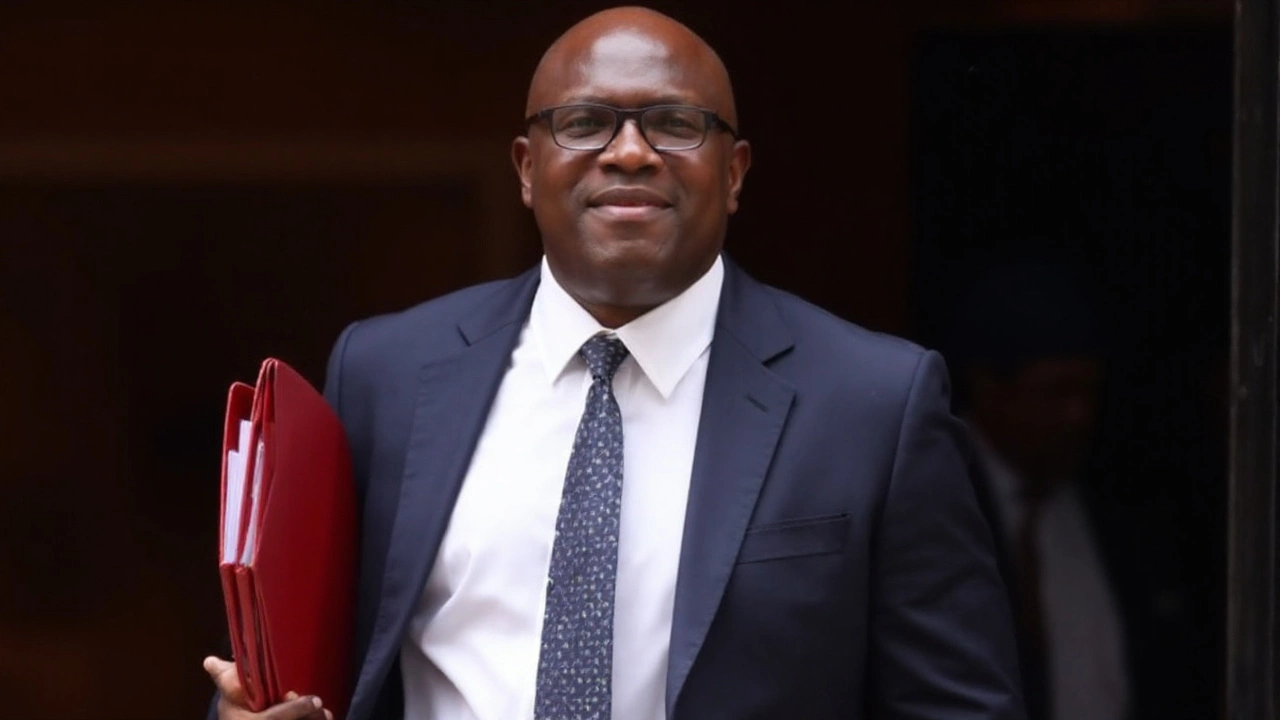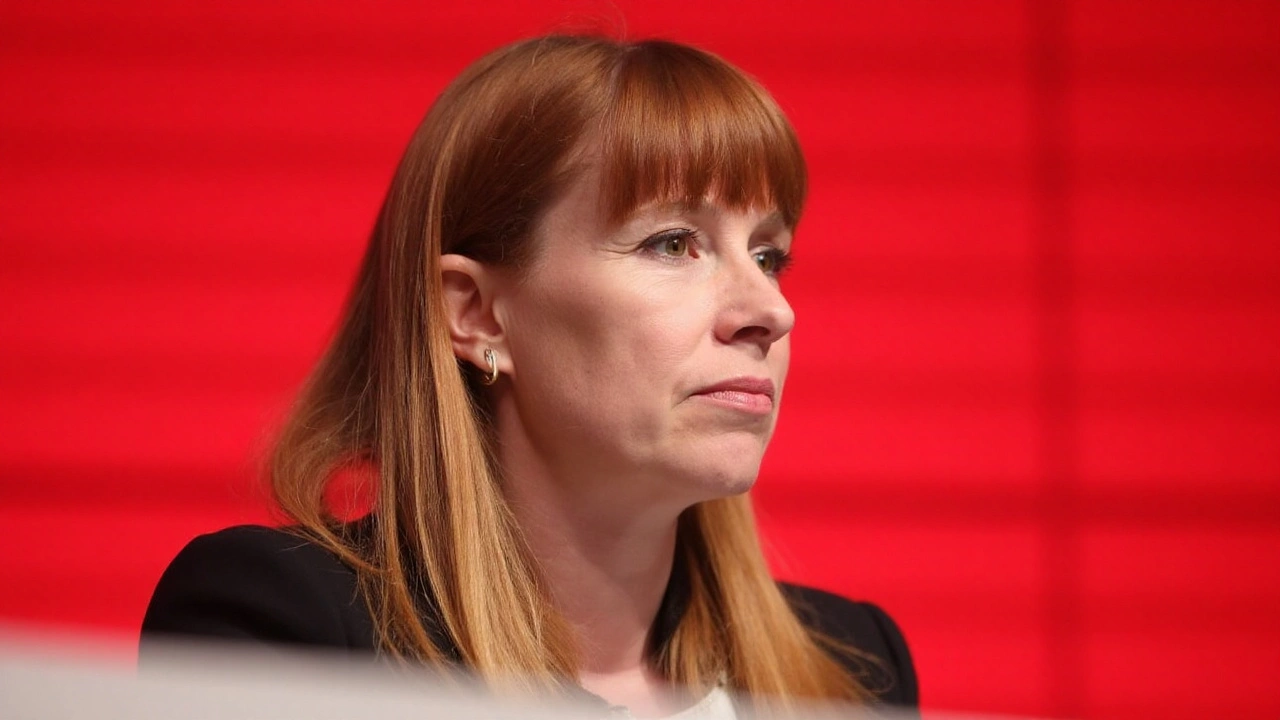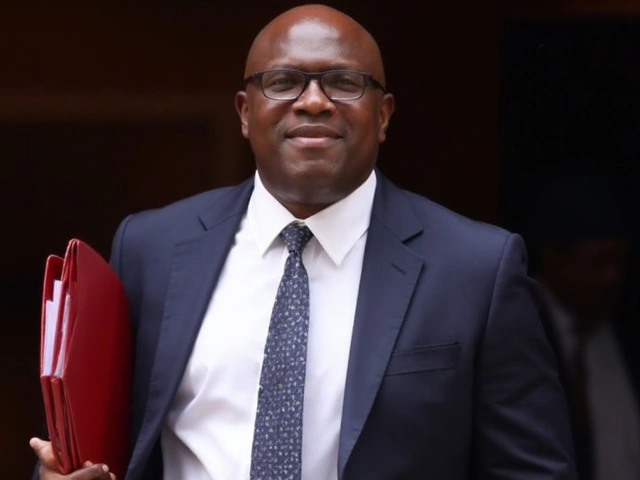- Home
- UK Politics
- Foreign Secretary Yvette Cooper Takes Post in Major UK Cabinet Reshuffle After Rayner Tax Row Exit

Foreign Secretary Yvette Cooper Takes Post in Major UK Cabinet Reshuffle After Rayner Tax Row Exit
The shock exit of Deputy Prime Minister Angela Rayner over a stamp duty tax breach triggered the most dramatic reshuffle of Keir Starmer’s time in Downing Street. Within hours, Yvette Cooper was handed the Foreign Office, David Lammy was moved into the dual role of Deputy Prime Minister and Justice Secretary, and Shabana Mahmood was sent to the Home Office. It was fast, sweeping, and clearly designed to regain control after a week dominated by Rayner’s resignation.
Rayner stepped down after the prime minister’s ethics adviser, Sir Laurie Magnus, found she breached the ministerial code. She admitted underpaying stamp duty on an £800,000 Hove flat bought in 2023 and said she regretted not getting specialist advice. That decision lit the fuse on a wider reset. With polls showing Reform UK nudging ahead of Labour, the government chose to move hard and early to reframe the story and put fresh faces on tough briefs.
Cooper’s appointment is the headline. She has been a central figure in Labour politics since the Blair era, known for deep dives into domestic policy, especially at the Home Office and the Treasury. Now she becomes Britain’s new Foreign Secretary at a moment when the war in Ukraine, an uneasy West–East standoff, and a crowded global agenda are pulling the UK in several directions at once.
What changed and who holds what
Downing Street moved a dozen pieces on the board. The biggest steps were in the four top jobs that steer the government’s day-to-day direction and its external posture. The goal: steady the ship and give Starmer a tighter front bench in a tricky stretch for the premiership.
- Yvette Cooper moves from Home Secretary to Foreign Secretary.
- David Lammy leaves the Foreign Office to become Deputy Prime Minister and Justice Secretary.
- Shabana Mahmood leaves Justice to become Home Secretary.
- Lucy Powell is removed as Leader of the House of Commons.
- Ian Murray is removed as Scottish Secretary.
Lammy’s repositioning is striking. Only days ago he told a radio interviewer he felt he was “the right guy in the right job at the right time.” Instead, he now takes on one of the thorniest domestic briefs—courts and prisons—while also serving as Starmer’s number two. That pairing suggests a simple message: the government wants a political heavyweight on the justice crisis while keeping him central to strategy.
Mahmood’s move to the Home Office is another big call. She has a legal background and has been close to Starmer’s core team. Now she inherits the full spectrum of the Home Office: asylum and border management, policing, counterterrorism, and serious crime. Expect immediate pressure over small boat crossings, a clogged asylum system, and public trust in policing.
Two sackings round out the tone of the day. Lucy Powell and Ian Murray are out, a reminder that reshuffles hurt and that performance, messaging, and political fit all matter when a government is under heat. Starmer has talked about “delivery” since taking office; this reset is meant to underline that.

Why this matters: foreign policy tests and domestic headwinds
Cooper arrives at the Foreign Office without a long record in international roles. But she knows how Whitehall works, has held big budgets, and has sat at the Cabinet table through tough cycles. The brief she takes on is unforgiving. Ukraine needs sustained military and economic backing. NATO wants consistency from London. The United States expects alignment on sanctions, tech controls, and China. The EU relationship still requires steady repair—trade disputes, cooperation on security, and scientific ties don’t fix themselves.
Her first months will likely be defined by four tracks. First, Ukraine—keeping weapons flowing, keeping sanctions tight, and holding together a coalition that sometimes shows fatigue. Second, China—finding the line between protecting critical tech and trade while avoiding a slide into tit-for-tat escalation. Third, the Middle East—managing tensions that can flare overnight and spill into domestic politics at home. Fourth, rebuilding influence—reassuring allies that the UK will show up consistently at NATO, G7, and UN forums.
That agenda would be daunting for any foreign secretary. Cooper also has to build trust fast with a diplomatic service that has lived through rapid turnover at the top. The Foreign, Commonwealth and Development Office needs clarity, not slogans—priorities, resources, and direction on where to concentrate effort. Expect early moves to set a tighter list of deliverables: sanctions enforcement on Russia, a clear China framework, and a reset with key European partners.
Lammy’s new challenge is closer to home but no less complex. Justice Secretaries inherit problems that take years to fix. Court backlogs are stubborn. Prisons are overcrowded. Legal aid is stretched. Staff shortages grind down the system. His political skills will be tested by decisions on sentencing, early releases, and capital building for prison capacity. As Deputy PM, he also becomes Starmer’s fixer—helping drive policy across departments and selling decisions to a restless public.
Mahmood at the Home Office will be judged on speed and competence. Expect questions about asylum processing times, returns agreements, and the government’s wider border plan. On policing, she faces demands to improve standards and rebuild trust after a string of scandals. The Home Secretary also sets tone on crime—violent crime, theft, cybercrime—and will have to show progress people can feel, not just read in statistics.
The reshuffle itself carries political intent. It signals a tighter core and a willingness to move well-known figures if the job demands it. It also tries to cut through the noise around Rayner’s departure, which dominated headlines and rattled Labour’s momentum. Recent polls putting Reform UK ahead of Labour add pressure. Whatever the exact numbers, the trendline matters. Governments rarely get the benefit of the doubt when voters think delivery has slowed or drifted.
The Rayner story is part of that backdrop. The ethics adviser’s finding was blunt: a breach of the ministerial code over underpaid stamp duty. Stamp Duty Land Tax applies to property purchases in England and Northern Ireland. When it’s underpaid, the buyer usually must settle the balance and may face penalties. Rayner said she referred herself, accepted responsibility, and regretted not seeking specialist advice on the £800,000 Hove purchase. That clarity made her position harder to defend.
There may yet be a route back for her. Former deputy Labour leader Baroness Harriet Harman said Rayner still has “in the bank” a deep well of loyalty in the party and believes there is a way back. That kind of signal matters in Westminster. But the timing is undefined, and the government’s immediate focus has moved on to protecting its agenda and containing political damage.
What does this mean abroad? Allies will look for signs of continuity. The UK’s support for Ukraine—military training, ammunition supply, and financial pressure on Russia—has been one of the few areas with strong cross-party backing. Cooper will likely stress that continuity quickly. On China, the tone could sharpen around strategic sectors—semiconductors, AI, quantum, rare earths—where the US and EU are moving in lockstep on controls and resilience. The UK will want to align, but in a way that still protects key exports and investment.
Europe will be watching too. After years of friction, the relationship with Brussels is steadier but not settled. There are practical issues—veterinary checks on food exports, mobility for skilled workers, research cooperation—that can boost growth if handled well. Cooper’s task is to pick the fights worth having and bank the wins that will matter in two years, not just two weeks.
There’s also the question of bandwidth. Big foreign policy moves take time: crafting sanctions that actually bite, negotiating security agreements, managing crises that break at 3 a.m. That time has to be carved out while the domestic agenda faces crunch points. Energy bills, housing supply, and stagnant public services all fight for attention. This is where Lammy’s dual role could pay off—if he can unblock problems at home, the government gets breathing space abroad.
Inside Whitehall, expect a cascade of second-order changes—junior ministers moved to match the new bosses, special advisers shuffled to new briefs, and departments told to refine priorities for the autumn. That means updated spending plans and a tighter grip on delivery. In the Foreign Office, that could look like slimming the list of flagship initiatives and pushing hard on a few high-impact areas: Ukraine support, a practical plan on China risk, and targeted work with Europe and the Indo-Pacific.
There are obvious early tests. Cooper will need a confident statement to Parliament that sets a clear line on Ukraine and the UK’s role in the alliance. She’ll also be expected to make a quick circuit with key counterparts—Washington, Brussels, Berlin, Paris—to shore up relationships and reaffirm commitments. Mahmood will face the Commons with migration numbers and a plan for faster asylum decisions. Lammy will be grilled on prison capacity, sentencing, and court delays.
The politics of reshuffles rarely stay tidy. Moves that look neat on paper can jar once personalities and portfolios collide. Cooper’s learning curve will be watched closely by a media hungry for slip-ups on the world stage. Lammy’s prosecutorial style—direct and often sharp—will be tested in a justice brief where compromise and patience are essential. Mahmood will juggle the demand for visible action with the grind of structural change.
Still, the logic is clear. Starmer wants a frontline that can talk to the country in plain terms, deliver a few early wins, and stop the bleeding in the polls. The foreign policy stakes are high and the domestic workload is heavy. Today’s reshuffle tries to put experienced operators on the most exposed posts and give the government a chance to reset the narrative after a bruising week.
One last point to watch: how the party reacts. When well-known figures are moved, backbenchers always read the tea leaves for signs of promotion or punishment. Cooper’s rise, Lammy’s pivot, and Mahmood’s elevation all change the internal balance. If the new team can produce steady updates—on Ukraine support, on court backlogs, on policing—internal noise will fade. If not, Westminster’s rumor mill takes over again.
The stakes abroad and at home don’t allow for much drift. Ukraine needs predictable backing. The justice system needs capacity and relief. The Home Office needs a plan that works at the border and on the street. The government has bet that this team, in these roles, can begin to show that kind of delivery—fast.

Damien Lockwood
Hi, I'm Damien Lockwood, a sports enthusiast with a deep passion for running and cycling. I've spent years honing my skills and understanding the mechanics behind these disciplines. Apart from participating in various marathons and races, I also love sharing my experiences and valuable insights through my writings. My goal is to inspire and encourage people to embrace a healthy lifestyle by engaging in physical activities they enjoy.
About
Welcome to IdentiSports UK Hub, your ultimate destination for all things running and cycling in the United Kingdom. Discover the latest news, events, and tips to help you improve your performance and stay connected with the vibrant sports community. Join us now and unleash your true potential!

